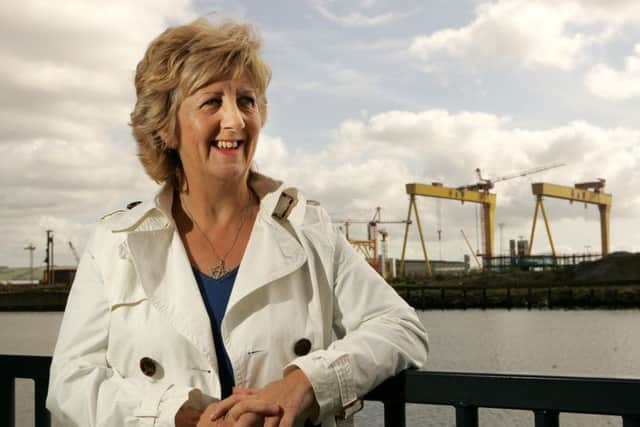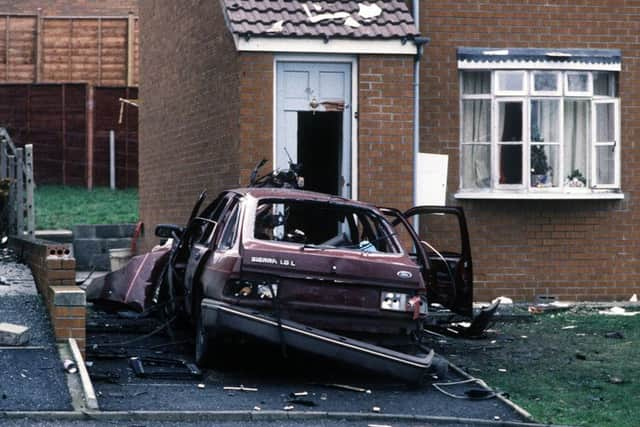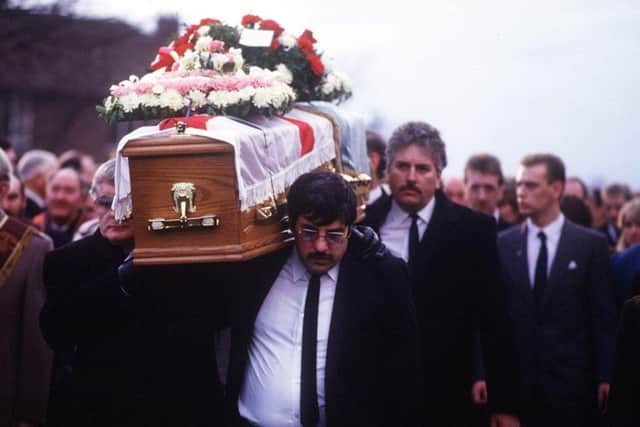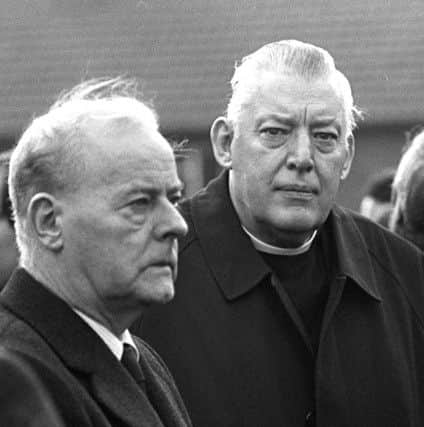Shirley McMichael: My husband was a UDA brigadier but he wanted a political solution


Mr McMichael was a Lisburn publican, married with two children, when an IRA bomb under his car fatally injured him outside his home on December 22 1987.
He was the deputy leader of the UDA and a prominent public figure for much of the 1980s, remembered as one of the leaders in loyalism who began the process of reflecting on political solutions to the Troubles.
Advertisement
Hide AdAdvertisement
Hide AdThe co-author of the influential document, ‘Common Sense, Northern Ireland – An Agreed Process’, it proposed a power-sharing government and a Northern Ireland Assembly.


Mr McMichael also helped set up the Ulster Democratic Party (UDP) which his son, Gary, continued to represent after his father’s death until the party’s demise.
But his far-sighted aspirations came to an abrupt end when the IRA took his life.
“So many people have been coming forward with messages of support, so it is quite emotional,” his widow Shirley told the News Letter.
Advertisement
Hide AdAdvertisement
Hide AdA memorial event will take place in their neighbourhood today.


Their son Saul is now 33 while Gary, John’s son from a previous marriage, is now 50.
“He was incredibly funny and witty and very intelligent,” Shirley said. “I was 17 when the Troubles started. John opened my mind to making a better future, respecting each others’ culture.
“He was a brigadier. I am sure he was not just an angel to get to that position. But we only got together in 1980. I did not know him in his earlier years. It was quite a political John I knew. He had a soft heart.”
Advertisement
Hide AdAdvertisement
Hide AdThe day of his murder, Mr McMichael was filling his car up with turkeys to deliver to loyalist prisoners’ families. Indoors, his son Saul was playing with a new puppy, which distracted him to one side of the living room.


“At that moment the house came down around us and part of the car came into that house [due to the explosion]. Thank God for that pup.”
After his death Roman Catholic Cardinal Tomas O Fiaich expressed sympathy to his family and said that ”for many years he was untiring in his efforts to find a way forward in Northern Ireland”.
The IRA said it had been “a pre-emptive strike against the UFF which was planning to bomb Dublin and other towns in the 26 counties in the coming weeks”.
Advertisement
Hide AdAdvertisement
Hide AdLeading unionists such as Jim Molyneaux and Rev Ian Paisley attended his funeral.


Only days before he was murdered, Shirley said, police warned that he was under threat not only from the IRA but also from the UDA.
Shirley believes a leading UDA figure, later murdered, passed information on his movements to the IRA because John was wanting to rid the organisation of his racketeering.
“Working-class loyalism has not been thinking or talking in recent times, but that is starting to change,” she said. “Where are we and where do we want to go?”
Advertisement
Hide AdAdvertisement
Hide AdShe added: “The Common Sense document John wrote was very much about taking the nationalist community into consideration, not triumphalism. It was showing a good way forward. It was definitely very much ahead of his time.
“I am hoping people will go back to look at his writings.”
Shirley is a member of the Victims and Survivors Forum but feels shunned by “big house unionists” and much more at home with republicans.


“I would be stigmatised for all the things the UDA do today, drugs and so on,” she said. “But I am my own person today – John would not have stood for a lot of things like that.”
The UDA claimed 292 lives up until the year of her husband’s death. Asked about its many murders, she said: “Absolutely. I understand. It was a very difficult time.”
Advertisement
Hide AdAdvertisement
Hide AdShe continues that many former “combatants” are now at peace with each other. But asked about the many innocent Catholics the UDA murdered, she replies: “It would have been wonderful if there had been a better way. I was a supporter of the civil rights movement but when the IRA violence began it coloured everyone’s judgment.
“There could have been a better way. I have talked to the victims of loyalist paramilitaries. My heart goes out to them.”
On the victims’ forum she now attempts to help people understand “what it was like for young loyalists in the late 1960s and 1970s”.